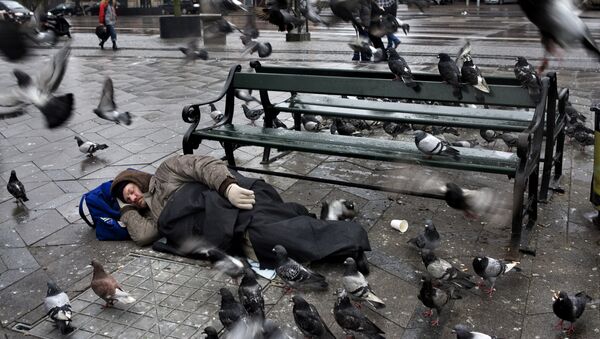Remarkably, Danish Social Security and Interior Minister Karen Ellemann-Jensen notoriously abolished the Danish poverty line last year.
"I still don't not believe that a poverty line can somehow alleviate the situation for people who have it hard economy-wise. Therefore I cannot see any sense in keeping it," Karen Ellemann-Jensen said in this connection.
A recent poll suggested that only six out of 100 Danes believe that Danish welfare will get any better in the future. A total of 56 percent of Danes expect the welfare system to weaken in the future, Danish newspaper Berlingske reported earlier in October.
International Day for the Eradication of Poverty: new infographic of #Eurostat #Estatspotlight #EndPoverty https://t.co/Ef03tNejlQ pic.twitter.com/1jucSQtKSS
— EU_Eurostat (@EU_Eurostat) October 17, 2016
Contrasting trends for risk of poverty or social exclusion across Member States #Eurostat #EndPoverty https://t.co/wq8TxwebES pic.twitter.com/I0LhsM6ke5
— EU_Eurostat (@EU_Eurostat) October 17, 2016
A person is considered "extremely poor" by Eurostat if he or she is unable to pay rent or pay for central heating at home. Other factors Eurostat takes into consideration include whether or not one can afford a washing machine, a color TV or a mobile phone, to take a week of vacation or put meat on the table every other day.
Risk of poverty or social exclusion in the EU back to its pre-crisis level #Eurostat #EndPoverty https://t.co/wq8TxwebES pic.twitter.com/czCy0rouHp
— EU_Eurostat (@EU_Eurostat) October 17, 2016





